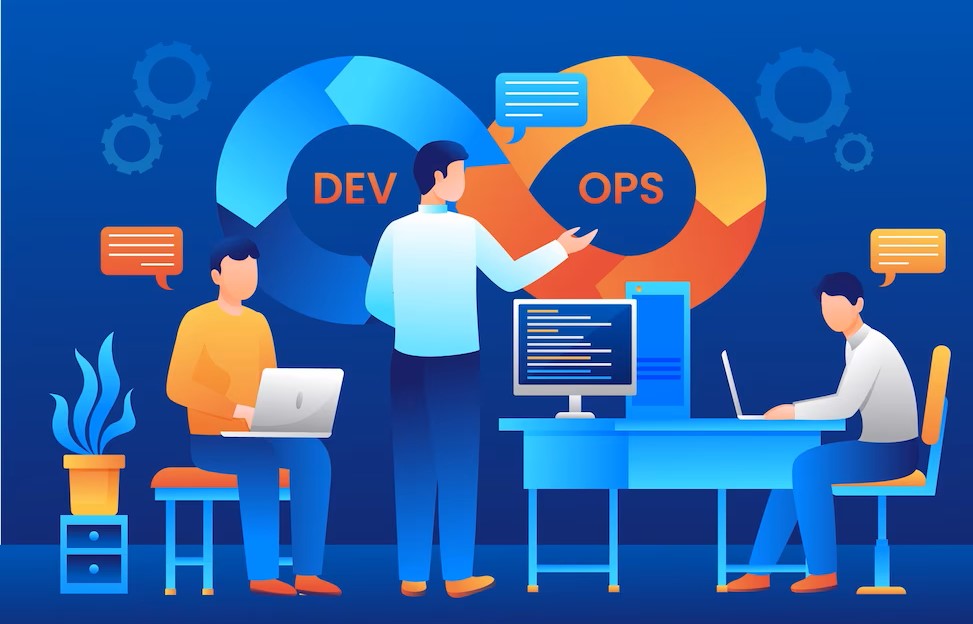Discover the wide range of APIs available in Azure DevOps for seamless integration! Learn how to leverage APIs for automation, customization, and extended functionality in your DevOps workflows. Explore the open ports for secure integration with Azure DevOps.
Introduction
Azure DevOps is a leading cloud-based platform that offers a comprehensive set of tools and services for managing software development projects. With its robust features and functionalities, Azure DevOps provides organizations with the ability to streamline their DevOps workflows, collaborate efficiently, and deliver high-quality software applications.
One of the key strengths of Azure DevOps is its extensibility through APIs. Azure DevOps offers a rich set of APIs that allow developers to interact programmatically with various services and functionalities within the platform. In this blog post, we will explore the total APIs available in Azure DevOps for integration, as well as the open ports for secure integration.
Total APIs Available for Integration
Azure DevOps provides a wide range of APIs that cover different aspects of the DevOps lifecycle. Here are some of the main APIs available for integration:
Azure DevOps REST API: This API allows you to interact with various Azure DevOps services such as Boards, Repos, Pipelines, Test Plans, and more. You can use this API to automate tasks such as creating and managing work items, managing source code repositories, triggering builds and releases, and managing test cases and test plans.
Azure DevOps Service Hooks API: This API allows you to create custom service hooks that can trigger events in Azure DevOps when certain actions occur, such as a build completes, a work item is created, or a pull request is merged. You can use this API to create custom notifications, integrations, or automations based on specific events within Azure DevOps.
Azure DevOps Extension SDK: This SDK provides a set of JavaScript APIs that you can use to create custom extensions for Azure DevOps. You can use this SDK to create custom UI components, add custom functionality to Azure DevOps services, and extend the capabilities of Azure DevOps based on your organization’s requirements.
Open Ports for Integration
When integrating with Azure DevOps, it’s important to understand the open ports that are required for secure communication. Here are the main open ports that are used for integration with Azure DevOps:
Port 80 (HTTP) and Port 443 (HTTPS): These ports are used for communication over HTTP and HTTPS protocols respectively. Most Azure DevOps services use these ports for communication, including the Azure DevOps REST API, Service Hooks API, and Extension SDK.
Port 8080 (HTTP) and Port 8443 (HTTPS): These ports are used for communication with Azure DevOps on-premises servers. If you are using an on-premises instance of Azure DevOps Server (formerly known as Team Foundation Server), you may need to open these ports for integration with Azure DevOps.
Here are some examples of how Azure DevOps APIs can be used for integration
- Automation: You can use the Azure DevOps REST API to automate tasks such as creating and managing work items, triggering builds and releases, managing test cases, and updating project configurations. For example, you can use the API to automatically create work items for bugs reported by users, trigger builds and releases for specific branches, or automatically update project configurations based on predefined criteria.
- Customization: With the Azure DevOps Extension SDK, you can create custom extensions that add new functionality to Azure DevOps services. For example, you can create a custom UI component that displays additional information about work items, or add custom actions to context menus for specific items in Azure DevOps Boards, Repos, or Pipelines. This allows you to tailor the user experience and add custom features to suit your organization’s unique requirements.
- Reporting and Analytics: The Azure DevOps REST API provides access to various data and analytics features, allowing you to extract valuable insights from your DevOps workflows. For example, you can use the API to retrieve data on build and release performance, track work item progress, or extract custom metrics for reporting and analysis purposes. This can help you make data-driven decisions and optimize your DevOps processes.
A Comprehensive Guide to Tableau APIs and Open Ports for Seamless Integration
- Integration with External Systems: Azure DevOps APIs can also be used to integrate with other external systems or third-party tools. For example, you can use the Service Hooks API to create custom integrations with external services such as Slack, Microsoft Teams, or GitHub, to send notifications, update status, or trigger actions based on events in Azure DevOps. This allows you to streamline communication and collaboration across different tools and systems in your software development workflows.
- Security and Authentication: Azure DevOps APIs provide secure authentication options, including OAuth, Personal Access Tokens (PATs), and Azure Active Directory (AAD) authentication. You can use these authentication mechanisms to ensure secure communication between your application and Azure DevOps, and manage access permissions for different users or applications. This helps to safeguard your DevOps workflows and protect sensitive data.
By leveraging the power of Azure DevOps APIs, you can enhance your DevOps workflows, automate tasks, customize functionality, gain insights from data, integrate with external systems, and ensure secure communication. The possibilities are vast, allowing you to tailor your DevOps processes to suit your organization’s unique requirements and drive efficiency in your software development practices.
Conclusion
Azure DevOps APIs provide developers with powerful capabilities for integrating and extending the functionality of the platform. With a wide range of APIs available, including the Azure DevOps REST API, Service Hooks API, and Extension SDK, developers can automate tasks, customize workflows, and create tailored solutions to meet their organization’s needs. Understanding the open ports required for secure integration is also crucial for ensuring smooth communication with Azure DevOps. By leveraging the power of Azure DevOps APIs and open ports, organizations can enhance their DevOps workflows and drive efficiency in their software development processes.

